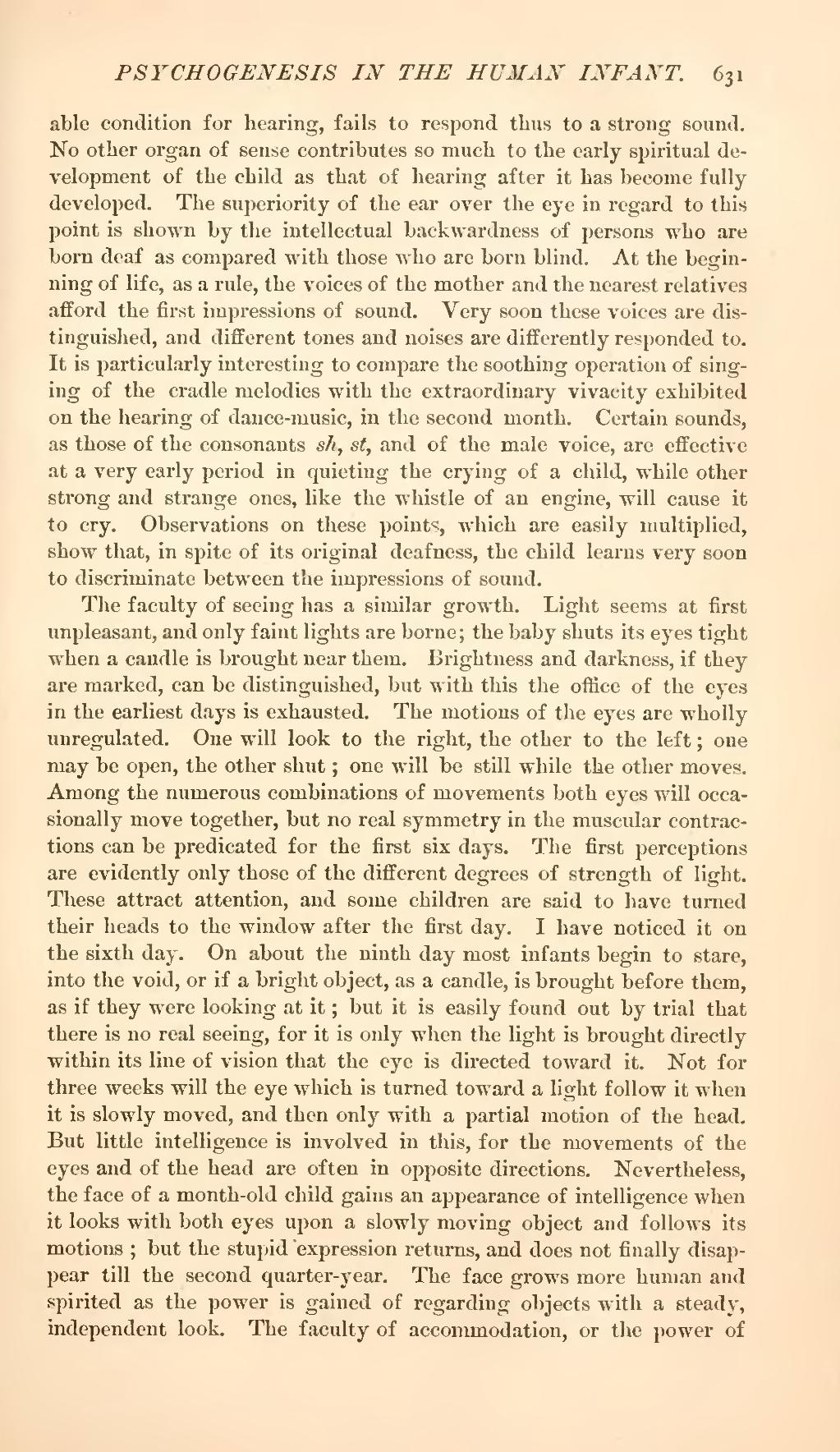able condition for hearing, fails to respond thus to a strong sound. No other organ of sense contributes so much to the early spiritual development of the child as that of hearing after it has become fully developed. The superiority of the ear over the eye in regard to this point is shown by the intellectual backwardness of persons who are born deaf as compared with those who are born blind. At the beginning of life, as a rule, the voices of the mother and the nearest relatives afford the first impressions of sound. Very soon these voices are distinguished, and different tones and noises are differently responded to. It is particularly interesting to compare the soothing operation of singing of the cradle melodies with the extraordinary vivacity exhibited on the hearing of dance-music, in the second month. Certain sounds, as those of the consonants sh, st, and of the male voice, are effective at a very early period in quieting the crying of a child, while other strong and strange ones, like the whistle of an engine, will cause it to cry. Observations on these points, which are easily multiplied, show that, in spite of its original deafness, the child learns very soon to discriminate between the impressions of sound.
The faculty of seeing has a similar growth. Light seems at first unpleasant, and only faint lights are borne; the baby shuts its eyes tight when a candle is brought near them. Brightness and darkness, if they are marked, can be distinguished, but with this the office of the eyes in the earliest days is exhausted. The motions of the eyes are wholly unregulated. One will look to the right, the other to the left; one may be open, the other shut; one will be still while the other moves. Among the numerous combinations of movements both eyes will occasionally move together, but no real symmetry in the muscular contractions can be predicated for the first six days. The first perceptions are evidently only those of the different degrees of strength of light. These attract attention, and some children are said to have turned their heads to the window after the first day. I have noticed it on the sixth day. On about the ninth day most infants begin to stare, into the void, or if a bright object, as a candle, is brought before them, as if they were looking at it; but it is easily found out by trial that there is no real seeing, for it is only when the light is brought directly within its line of vision that the eye is directed toward it. Not for three weeks will the eye which is turned toward a light follow it when it is slowly moved, and then only with a partial motion of the head. But little intelligence is involved in this, for the movements of the eyes and of the head are often in opposite directions. Nevertheless, the face of a month-old child gains an appearance of intelligence when it looks with both eyes upon a slowly moving object and follows its motions; but the stupid expression returns, and does not finally disappear till the second quarter-year. The face grows more human and spirited as the power is gained of regarding objects with a steady, independent look. The faculty of accommodation, or the power of
